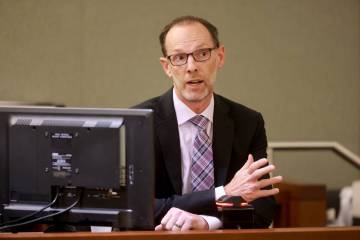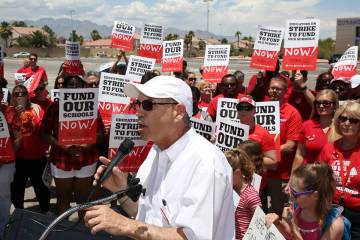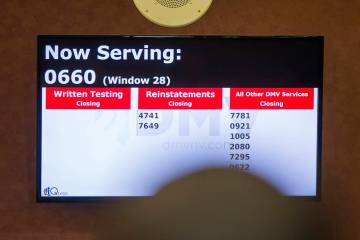EDITORIAL: Presidential candidates’ policies must include civil forfeiture reform
Less than a year from now, Americans will elect their next president. Not surprisingly, the campaign for the most important job in the world has been highly divisive.
But voter dissatisfaction with Washington is a bipartisan sentiment. This month, Gallup measured public approval of Congress at 11 percent, just 2 percentage points from its all-time low of 9 percent. Earlier this year, six out of 10 Americans surveyed said the federal government is too powerful, and less than 20 percent of people trust Washington to do the right thing.
A strong majority of Americans believe Washington is broken. Although those at the edges of the political spectrum will sharply disagree on how to fix it, voters and presidential candidates from both parties should be able to agree on some policies that could end ongoing abuses and make the federal government more efficient.
With that in mind, and because presidential hopefuls are visiting Nevada frequently to build support for the state's February party caucuses, today the Review-Journal starts a 10-editorial series on policies and government reforms we believe both parties' candidates can get behind. Today's topic: civil forfeiture reform.
Forfeiture laws were enacted decades ago to help authorities prevent criminals from keeping the proceeds of their offenses (primarily drug profits) and to provide restitution to their victims. But federal authorities have warped the law's application to the point that they now can take anything from anyone if they merely suspect that assets were used or might be used in the commission of a crime.
Although Americans are afforded the presumption of innocence in criminal proceedings — they are innocent until proved guilty beyond a reasonable doubt — those protections no longer apply to the public's property. Under civil forfeiture laws, authorities can take and keep your stuff without charging you with a crime, without a warrant or indictment. They don't have to arrest you. They don't have to convict you. They don't even have to write you a citation. And to get your stuff back, whether it's cash, jewelry, a vehicle or even a house, defendants face the costly burden of proving their property was obtained lawfully, a standard that turns due process rights upside down.
A drug war policy gone horribly wrong. What a surprise.
Local police and prosecutors are too happy to utilize the civil forfeiture process, working with federal authorities or independent from them, because they can use seized assets to fund equipment purchases or cover operational expenses. This leads departments to pursue assets instead of actual criminals. Since the passage of civil forfeiture laws in the mid-1980s, the Institute for Justice reports, seizures have increased from $94 million to roughly $5 billion in 2014, an inflation-adjusted increase of more than 2,100 percent.
Civil forfeiture now is so common that Martin Armstrong, purveyor of the Armstrong Economics blog, figured out this month that American law enforcement swiped more property than burglars last year — and it wasn't even close. According to the FBI, burglary losses reached a mere $3.5 billion in 2014. Seized assets doubled under President Barack Obama before his administration announced this year that it would limit its use of the practice. Whether that order has been followed isn't clear.
It isn't hyperbole to call some incidents of civil forfeiture outright theft. Federal courts in Nevada have reined in forfeiture overreach over the past two years. One judge ordered the Humboldt County Sheriff's Department to return tens of thousands of dollars seized from motorists on Interstate 80 without so much as writing a ticket. Another judge ordered the return of $167,000 illegally seized from a motorist on I-80 by Elko County sheriff's deputies. In that case, the judge blasted federal prosecutors for deliberately withholding evidence that the traffic stop was improper.
Not only are authorities abusing the rights of citizens, they're abusing the justice system itself as part of this money grab.
Fighting civil forfeiture is costly and time consuming. Especially at the federal level, prosecutors have unlimited resources at their disposal and can drain a defendant a second time through dragged-out appeals. Untold numbers of victims — some of them guilty of nothing more than carrying a few thousand dollars in cash while traveling — make the calculation that contesting a wrongful seizure simply isn't worth it.
To the right, civil forfeiture reform is an important step in scaling back the power of the federal government. To the left, civil forfeiture changes protect core liberties and halt a practice that too often targets racial and ethnic minorities.
It won't be enough for the next president to champion legislation that requires the filing of criminal charges or a criminal conviction before assets can be seized from a suspect. The president must appoint an attorney general who's committed to changing the culture of the Justice Department and ensuring that state U.S. attorneys start pursuing justice over cash.




























